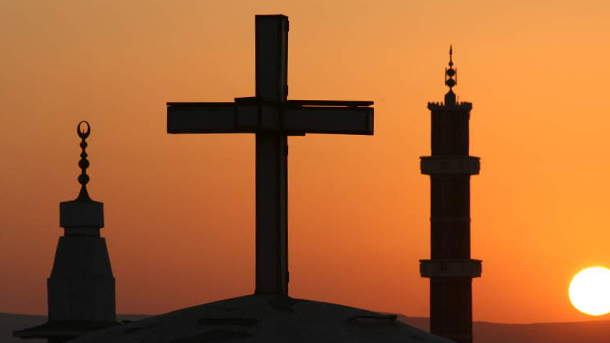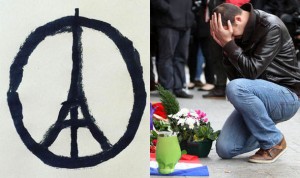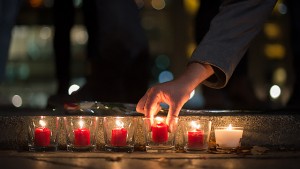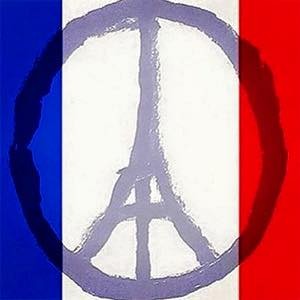SPECIAL COVERAGE
|
||
 |
||
|
“Allahu akbar” was never a call to violence and destruction
~ Fr. Thomas Rosica
 The tragic, violent events of the past days in Beirut and Paris, as well as the recent downing of a Russian plane fill us all with rage, horror and fear and cause many of us to ask: ‘Is there still space for dialogue with Muslims?’. The answer is: yes, now more than ever.
The tragic, violent events of the past days in Beirut and Paris, as well as the recent downing of a Russian plane fill us all with rage, horror and fear and cause many of us to ask: ‘Is there still space for dialogue with Muslims?’. The answer is: yes, now more than ever.
When I returned to Canada in 1994 after having spent the final four years of my graduate studies in Sacred Scripture in Jerusalem, I was certain of one thing: Islam was becoming a growing, global concern and a great pastoral challenge for the Catholic church. Not many people believed me when I shared this with them! Though my biblical studies were at the French Dominican-run Ecole Biblique de Jérusalem and at the Hebrew University on Mount Scopus, I lived in the Muslim Quarter of Jerusalem’s Old City. Many of my neighbors and friends were Muslims. I learned Arabic, studied the Koran, and delighted in the Middle Eastern hospitality that the Palestinian people offered so graciously. In my visits and lecturing in the neighboring Arab lands of Palestine, Jordan, the Sinai and Egypt, I was very struck by the image of believers in Allah who, without caring about time or place, fell to their knees in prayer several times each day. I did not see such scenes in the great Christian cathedrals of Europe, which in many cases had become museums for throngs of paying tourists. I learned that Islam has a total organization of life that is completely different from the Catholic one: Islam embraces everything. The Muslim call to prayer: “Allahu akbar” was never meant to be a call to kill, destroy, mame and cause untold havoc and terror. Those years in the Holy Lands for me included the first Palestinian Intifada and the first Persian Gulf War. I prayed with my Jewish friends at weekly Shabbat services and High Holy Days at the Hebrew Union College and heard vivid stories of poverty, injustice, and anger from my Palestinian friends. I experienced Ramadan with my neighbors, broke the fast with them, heard about “jihad,” the reality of suicide bombers, the growing phenomenon of false martyrdom, and witnessed the tremendous power that Muslim clerics had over their congregations. Some of this was very frightening to discover and witness.  The recent horrific events in Beirut and Paris, as well as the Russian plane tragedy, and the fallout thereafter have brought back the memories of my Middle Eastern experiences. As a believer in the One God, a Catholic priest, educator and one working in international media, I am convinced now more than ever that dialogue between our religions must combine both an awareness of what we have in common and what profoundly distinguishes our traditions. Islam is not a uniform religion. In fact, there is no single authority for all Muslims, and for this reason dialogue with Islam is always dialogue with various groups. No one can speak for Islam as a whole; it has no commonly regarded orthodoxy. This is not a strength. Muslims believe that the Koran comes directly from God. This makes it difficult for the Koran to be subjected to the same sort of critical analysis and reflection that has taken place among Christians and Jews over the Bible and the New Testament.
The recent horrific events in Beirut and Paris, as well as the Russian plane tragedy, and the fallout thereafter have brought back the memories of my Middle Eastern experiences. As a believer in the One God, a Catholic priest, educator and one working in international media, I am convinced now more than ever that dialogue between our religions must combine both an awareness of what we have in common and what profoundly distinguishes our traditions. Islam is not a uniform religion. In fact, there is no single authority for all Muslims, and for this reason dialogue with Islam is always dialogue with various groups. No one can speak for Islam as a whole; it has no commonly regarded orthodoxy. This is not a strength. Muslims believe that the Koran comes directly from God. This makes it difficult for the Koran to be subjected to the same sort of critical analysis and reflection that has taken place among Christians and Jews over the Bible and the New Testament.
There is a noble Islam, embodied, for example, by the Kings of Morocco and Jordan, and there is also the extremist, terrorist Islam, which we must not identify with Islam as a whole; this would be a grave injustice. ISIS is not Islam. ISIS and any form of terrorism in the name of God is an aberration of religion. ISIS’ manipulation and distortion of the massive refugee crisis to infiltrate terrorists into other countries is criminal and evil. ISIS’ reign of terror, immobilizing peoples to act and filling them with fear is evil. We must distinguish between true religion and the twisted religion used to justify hatred and violence. True religion leads people to healing and peace and desires to make the world a better place. True religion respects the sacredness and dignity of the human person. True religion invites people to respond to crises with mercy, charity and hospitality. In August 2005, after meeting with Jews at a synagogue in Cologne, Germany, during the Cologne World Youth Day, Pope-emeritus Benedict XVI met with representatives of some Muslim communities. His prophetic words then are important for the world to hear today:
“I am certain that I echo your own thoughts when I bring up one of our concerns as we notice the spread of terrorism. I know that many of you have firmly rejected, also publicly, in particular any connection between your faith and terrorism and have condemned it. I am grateful to you for this, for it contributes to the climate of trust that we need.
 Terrorist activity is continually recurring in various parts of the world, plunging people into grief and despair. Those who instigate and plan these attacks evidently wish to poison our relations and destroy trust, making use of all means, including religion, to oppose every attempt to build a peaceful and serene life together.
Terrorist activity is continually recurring in various parts of the world, plunging people into grief and despair. Those who instigate and plan these attacks evidently wish to poison our relations and destroy trust, making use of all means, including religion, to oppose every attempt to build a peaceful and serene life together.
Thanks be to God, we agree on the fact that terrorism of any kind is a perverse and cruel choice which shows contempt for the sacred right to life and undermines the very foundations of all civil coexistence. If together we can succeed in eliminating from hearts any trace of rancour, in resisting every form of intolerance and in opposing every manifestation of violence, we will turn back the wave of cruel fanaticism that endangers the lives of so many people and hinders progress towards world peace. …The task is difficult but not impossible. The believer – and all of us, as Christians and Muslims, are believers – knows that, despite his weakness, he can count on the spiritual power of prayer. Dear friends, I am profoundly convinced that we must not yield to the negative pressures in our midst, but must affirm the values of mutual respect, solidarity and peace. The life of every human being is sacred, both for Christians and for Muslims. There is plenty of scope for us to act together in the service of fundamental moral values. …The lessons of the past must help us to avoid repeating the same mistakes. We must seek paths of reconciliation and learn to live with respect for each other’s identity. The defence of religious freedom, in this sense, is a permanent imperative, and respect for minorities is a clear sign of true civilization. In this regard, it is always right to recall what the Fathers of the Second Vatican Council said about relations with Muslims. “The Church looks upon Muslims with respect. They worship the one God living and subsistent, merciful and almighty, creator of heaven and earth, who has spoken to humanity and to whose decrees, even the hidden ones, they seek to submit themselves whole-heartedly, just as Abraham, to whom the Islamic faith readily relates itself, submitted to God…. Although considerable dissensions and enmities between Christians and Muslims may have arisen in the course of the centuries, the Council urges all parties that, forgetting past things, they train themselves towards sincere mutual understanding and together maintain and promote social justice and moral values as well as peace and freedom for all people” (Declaration Nostra Aetate, n. 3).” What we are witnessing today are extremists who try to monopolize the religious leadership, whether it is Christians, Jews or Muslims. To kill in the name of religion is not only an offence to God, but it is also a defeat for humanity. No situation can justify such criminal activity, which covers the perpetrators with infamy, and it is all the more deplorable when it hides behind religion, thereby bringing the pure truth of God down to the level of the terrorists’ own blindness and moral perversion. Uniting our voice to that of Pope Francis, we say: ‘any violence which seeks religious justification warrants the strongest condemnation because the Omnipotent is the God of life and peace. The world expects those who claim to adore God to be men and women of peace who are capable of living as brothers and sisters, regardless of ethnic, religious, cultural or ideological differences’ (Ankara, 28 November 2014)”.  What is the role of religious leadership in this crisis? It must show an equal sense for the dignity of every human being as a child of God, in order to give each one his part in the land of God. Exclusiveness or one-sidedness will harm both sides; it will harm the process of peace, the land itself and the church’s vocation as bearer of salvation for humankind. Authentic religious leadership has to deal with religious extremism, wherever it is and from whomever it comes. Muslim leaders and moderate Muslims need to condemn acts of violence and terror.
What is the role of religious leadership in this crisis? It must show an equal sense for the dignity of every human being as a child of God, in order to give each one his part in the land of God. Exclusiveness or one-sidedness will harm both sides; it will harm the process of peace, the land itself and the church’s vocation as bearer of salvation for humankind. Authentic religious leadership has to deal with religious extremism, wherever it is and from whomever it comes. Muslim leaders and moderate Muslims need to condemn acts of violence and terror.
The three communities of Abrahamic faith – Muslims, Christians and Jews -– are witnessing among some adherents the exploitation and manipulation of religion, fostering fanaticism with crude idols shaped by what is evil in ourselves. Jews, Christians and Muslims today venerate Abraham as their common “father of faith” in the one God who blesses all the peoples of the Earth. God does not permit his love for one people to become an injustice to other people. Believers who demand justice, respect and equality for themselves, in the name of God should demand the same for their neighbors. In the wake of the deadly terror attacks in Paris on Friday, in which at least 129 people were killed, and hundreds more seriously wounded, the Director of the Press Office of the Holy See, Fr. Federico Lombardi, SJ, told Vatican Radio that the upcoming Holy Year is a message of mercy to drive out fear. “In these sad days, in which murderous violence has reared its insane, horrible head, many wonder how to respond. Some people are already asking how to live the experience of these last days of waiting before the opening of the Jubilee [of Mercy]. Be on guard: these murderers, possessed by a senseless hatred, are called ‘terrorists’ precisely because they want to spread terror. If we let ourselves be frightened, they will have already reached their first objective. This, then, is one more reason to resist with determination and courage the temptation to fear. …A message of mercy, that love of God which leads to mutual love and reconciliation. This is precisely the answer we must give in times of temptation to mistrust.” In today’s world where God is tragically forgotten, Christians and Muslims are called in one spirit of love to defend and always promote human dignity, moral values and freedom. Our common pilgrimage to eternity must be expressed in prayer, fasting and charity, but also in joint efforts for the condemnation or terrorism and violence in the name of God, for peace and justice, for human advancement and the protection of the environment. An underlying problem in dealing with Islamic nations is the lack of separation between religion and the state. Part of the dialogue with Islamic religious and political authorities should be aimed at helping to develop such a separation. By walking together on the path of reconciliation and renouncing in humble submission to the divine will any form of violence as a means of resolving differences, these two great world religions will be able to offer a sign of hope, radiating in the world the wisdom and mercy of that one God who created and governs the human family. Fr. Thomas Rosica, CSB English language attaché, Holy See Press Office CEO, Salt and Light Catholic Media Foundation |
||